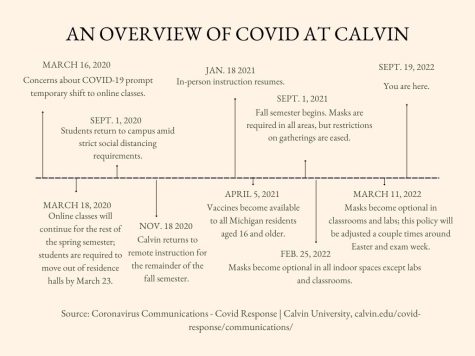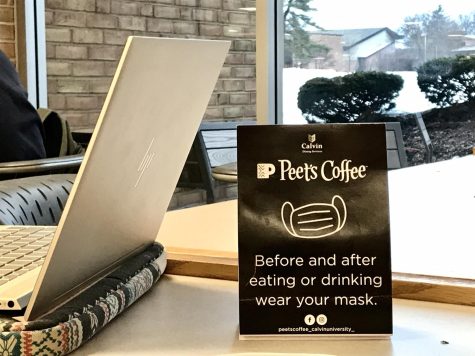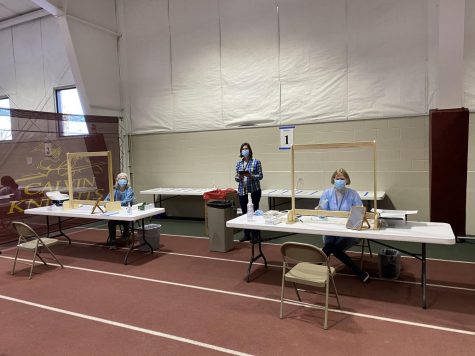C.S Lewis’s message for our pandemic
“And at first sight this seems to be an odd thing to do during a great war. What is the use of beginning a task which we have so little chance of finishing? Or, even if we ourselves should happen not to be interrupted by death or military service… Is it not like fiddling while Rome burns?” C.S. Lewis, a World War I veteran, wrote these words as the Nazis neared London. While they may have been written about wartime education, they are just as relevant for pandemic education.
When the coronavirus pandemic was first taking shape in January, I was in Dr. Laura Smit’s class on the theology of Narnia. Smit shared a brief passage and summarized some of Lewis’s “Learning in Wartime” sermon. The thesis of “Learning in Wartime” has stuck with me since.
“The war creates no absolutely new situation; it simply aggravates the permanent human situation so that we can no longer ignore it,” Lewis wrote. He later writes about how war, or in our case, a virus, doesn’t increase the frequency of death or the pain of death. It may speed it up a little, but, he writes, “I hardly suppose that that is what we fear. Certainly, when the moment comes, it will make little difference how many years we have behind us.” What war or pandemics do is make us remember death.
“We are always on our way to death… we are always facing not just the death of the body but the death of the soul… why would [this war], which is not actually as pressing, suddenly mean that we can’t do our work,” Smit summarized Lewis, “If this is worth doing while you face the question of heaven or hell, it’s certainly worth doing while your country’s at war.”
Because our situation isn’t changed but revealed during things like wars or pandemics, Lewis thought that if something had value, such as learning in normal times, then those same things do not lose value during a war or pandemic.
Smit said part of what’s behind Lewis’s argument is a push against pragmatism, the idea that everything must have a practical application. Lewis, and thinkers like him, thought that the meaning of life is found in the things we do for their own sake rather than the pragmatic. “School studies are meant to be acts of leisure because they are things you do for their own sake. That’s why they are the liberal arts,” Smit said.
The coronavirus pandemic gives us the choice of these two perspectives to frame our education.
As Calvin has moved towards a semi pass-fail system, Lewis’s words have resonated with me even more. It allows students to make the choice themselves, the choice of how we understand and value our education: is it pragmatic or leisurely?
If we choose the former, we may choose to skip readings and slack off in the two classes we know we will choose for our pass/fail option. We would put the effort in for the “C” rather than the “A.” If we opt for the latter, Calvin’s option for pass/fail may allow students, for the first time in their education, to be free of the grading system and to focus on learning itself. Learning for the sake of learning. Under this scenario, students may feel compelled to pick the harder paper topic, to take the optional test, and continue engaging the readings as if it were a regular semester. In this sense, Lewis’s sermon, and his anti-pragmatic attitude, can serve us in this moment.
Lewis’s sermon can be found in his “The Weight of Glory” book or here.








